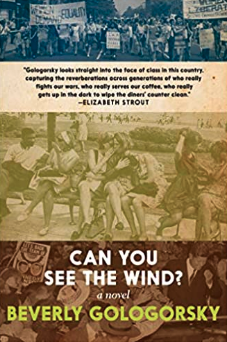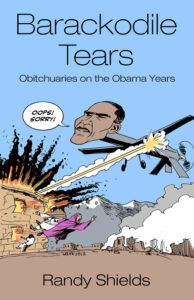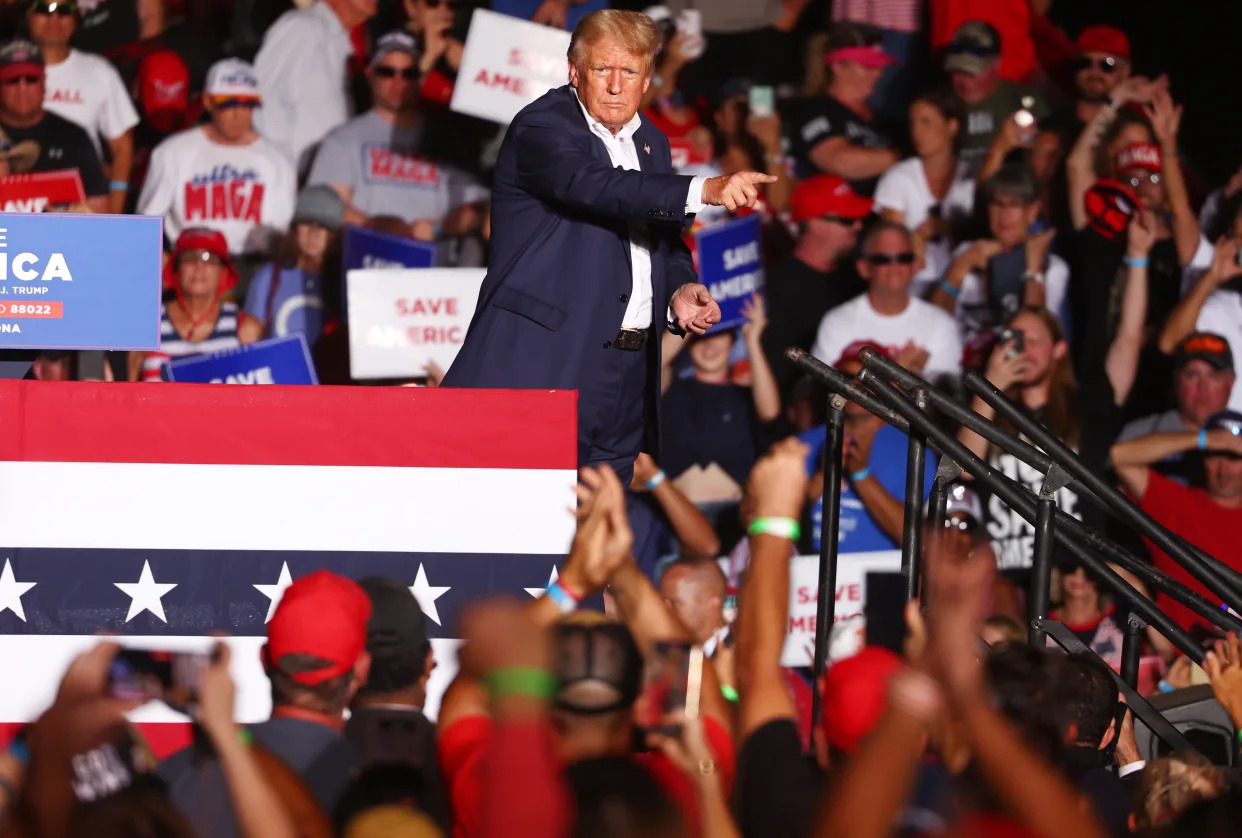“Is That Orwellian Or Kafkaesque Enough For You?”
The Guardian Removes Bin Laden’s "Letter To America"
The Guardian has long promoted itself as a valiant publisher of news and analysis that holds the powerful to account. It is a thing of wonder that the Guardian appends the following comment beneath news pieces:
Our quality, investigative journalism is a scrutinising force at a time when the rich and powerful are getting away with more and more.
For over twenty years, Media Lens has shown how false is this claim.
A new, significant example occurred just last week. On 15 November, the paper removed Osama bin Laden’s “Letter to America” which it had hosted on its website for almost 21 years. What was suddenly so problematic about the letter that it had to be abruptly removed by the Guardian after being on its website for so long (an archived version can be seen here)?
The deleted text was an English translation of bin Laden’s letter, first published on a Saudi website linked to al-Qaeda, in November 2002, over one year after the 9/11 attacks on the United States. The Guardian website published a full translation on its website on 24 November 2002. The letter, addressed to the American people, contains a detailed list of grievances against the US shared by many in the Muslim world, explaining what motivated the 9/11 attacks.
The letter has been ‘rediscovered’ during Israel’s current genocidal assault against Palestinians in Gaza, with people around the world discussing relevant issues online. The Guardian link to the letter went viral, particularly among young people on TikTok, with 14 million views of videos tagged with #lettertoamerica. Many of these videos were posted by young Americans, shocked to find that people around the world hate their country because of strong grievances rooted in real issues.
To properly understand why this response is so remarkable, and why it was quickly followed by an Orwellian act of Guardian censorship, requires some vital context.
‘They Hate Us For Our Freedoms’
In a recent edition of System Update, a widely-watched online politics programme, the US journalist Glenn Greenwald summed up the belief system of most Americans, of all ages:
The people who live in the United States believe and are told that we are a nice, good, benevolent, democratic, free country. We don’t want to bother anyone in the world. We’re not here to conquer anyone. To the extent that we involve ourselves in the world, it’s to help; like we’re doing now in Ukraine, we’re told. We just want to spread democracy, want to defend people…So, why would anyone possibly want to perpetrate an attack on the United States of that brutality and savagery? Americans rightly wanted to know.
Greenwald continued:
And they were fed a complete bullshit answer: by the neocons, by the media, by the government: “They hate us for our freedoms”.
The letter was written by bin Laden, who was loudly blamed for the attacks by the US and other governments, and who was extrajudicially executed by US special forces in Pakistan in May 2011. Greenwald pointed out that there are interviews with bin Laden where he had spelled out the grievances explaining the actual reasons why many in the Muslim world hate the United States.
Greenwald added:
And yet, after 9/11, the US government instructed the television networks – ABC, NBC, CBS, CNN, Fox – do not show any speeches or interviews with Osama bin Laden, because they didn’t want the American population hearing from him what their actual grievances were. They didn’t want Americans to think that maybe we had done things in that part of the world that caused it to happen, that causes “blowback”, to use the CIA’s term.
As with any statement from an influential or powerful figure, bin Laden’s letter needs to be read critically. There is much to revile in the letter, not least its antisemitism and homophobia. But consider some of the grievances he detailed against the US government, summarised below:
- Palestine was ethnically cleansed to allow the state of Israel to be set up in 1948. Since then, the Palestinians have been subjected to an Israeli military occupation, suffering for decades as a result of massacres, imprisonment, torture, shootings, bombs, destruction of homes and livelihoods: all backed with massive military, economic and diplomatic support from the US.
- Sanctions against Iraq, pushed heavily by the US, led to the deaths of 1.5 million Iraqis, 0.5 million of them children under 5.
- US attacks in Somalia, support for Russian atrocities in Chechnya, and support for Israeli aggression against Lebanon.
- Oppression of the populations of US client states in the Middle East, ruled by authoritarian monarchs, or where democratically elected leaders were removed and replaced by US-friendly dictators.
- The exploitation of the Middle East’s natural resources, especially oil, by Western corporations at paltry prices secured through economic and military threats.
- US military bases spread across the region, protecting what the US sees as its own assets.
- The leading US role in destroying climate stability – in particular, its refusal to sign the Kyoto agreement made at the 1997 UN Climate Summit – in order to preserve the profits of US fossil fuel giants.
- US power and influence has been used, not to defend universal humanitarian principles and values, but to secure US geostrategic interests and profits.
- The dropping of atomic bombs on Hiroshima and Nagasaki, even though Japan was ready to negotiate an end to the war.
The now blatant US support for Israeli ethnic cleansing of Gaza – and the genocidal nature of Israel’s attacks on Palestinians – seemingly underpins the explosion on social media of attention directed towards bin Laden’s letter. Young Americans are waking up to the fact that the US has long supported Israel in its oppression of the Palestinians.
Another significant factor is the awful realisation among young American people, especially, that US government policy has made them targets as retribution for the crimes committed by Washington.
“Removed Document”: Guardian Censorship
So why did the Guardian, which proclaims its credentials in supposedly enabling readers to understand the world, remove bin Laden’s letter from its website? The decision was ‘explained’ in a piece by Blake Montgomery, the tech editor for Guardian US in New York City. In fact, the headline, and most of the article, focused on TikTok:
TikTok “aggressively” taking down videos promoting Bin Laden “letter to America”.
The Guardian quoted TikTok:
Content promoting this letter clearly violates our rules on supporting any form of terrorism. We are proactively and aggressively removing this content and investigating how it got on to our platform.
But what did the article report about the Guardian itself?
In response to the letter’s renewed spread, Guardian News and Media removed it on 15 November 2023, replacing it with the statement: “The transcript published on our website had been widely shared on social media without the full context. Therefore we decided to take it down and direct readers instead to the news article that originally contextualised it.”
Significantly, the Guardian article closed with a statement from the White House, as though this should be literally the last word on the matter:
There is never a justification for spreading the repugnant, evil, and antisemitic lies that the leader of al Qaeda issued just after committing the worst terrorist attack in American history.
As Greenwald observed, US ‘Big Tech’ companies – Facebook, Instagram, X (formerly Twitter) – are already subjected to censorship in accordance with the dictates of the US security state, as the ‘Twitter files’, a cache of leaked documents, showed. TikTok, a Chinese company, was the only major platform outside the reach of the US. But, noted Greenwald, they were told that, as a condition of being able to continue to operate in the US, they would have to agree to the censorship demands of the US government. Hence, TikTok’s determination to ban TikTok clips discussing #lettertoamerica.
In other words, the censorship actions taken by both TikTok and the Guardian align with the requirements of the US government. This should come as no surprise to anyone who is familiar with the long history of the Guardian acting as a liberal gatekeeper for establishment power. Moreover, the paper’s ever-closer relationship with UK state security services, themselves subservient to US state power, is abundantly clear.
Piling irony upon irony, one article that the Guardian has not removed from its website, is the fake front-page ‘news’ story in November 2018 claiming that Paul Manafort, Donald Trump’s former campaign manager, supposedly held secret talks with WikiLeaks co-founder Julian Assange in the Ecuadorian Embassy in London. Such reprehensible journalism unjustly besmirched Assange’s reputation and may well have been part of a state-sponsored propaganda campaign in advance of his forcible removal from the embassy by British police in April 2019, to be thrown in Belmarsh Prison where he remains to this day, awaiting likely extradition to the US.
What about the Guardian’s decision to redirect readers to their 2002 news article that ‘contextualised’ the letter? The article was titled, ‘Osama issues new call to arms’, and was written by Jason Burke, then the Guardian’s chief reporter and now the paper’s international security correspondent. The opening sentence made explicit the state-friendly pitch adopted throughout:
A chilling new message from Osama bin Laden is being circulated among British Islamic extremists, calling for attacks on civilians and describing the “Islamic nation” as “eager for martyrdom”.
Burke continued:
Britain, with its close support for America in the war on terror and Iraq, is a prime target and analysts believe any military action against Saddam Hussein would provoke a spate of revenge attacks by Islamic militants. Sources described the mood in Whitehall and at Scotland Yard as “jumpy”.
Recall that this article was published in November 2002, as the West was mounting a propaganda blitz to ‘justify’ its imminent invasion of Iraq which began in March 2003.
Burke added:
Most of his letter comprises a lengthy list of grievances against the West.
But which grievances? Surely the Guardian would spell out several examples from this ‘lengthy list’? Amazingly Burke did not cite any of them, other than bin Laden’s ‘sustained attack on the “immorality” of Western society.’
In other words, the Guardian article that supposedly ‘contextualised’ bin Laden’s letter, which the paper has now removed, does nothing of the sort, obscuring US crimes in Palestine, Iraq, Lebanon, Somalia, Japan and elsewhere.
Because the letter had gone viral, but then been removed, the most viewed link on the Guardian at one point last week (on 15 November) was actually, ‘Removed – document’; the place-marker with its risible ‘explanation’ that the Guardian had provided.
As Greenwald noted:
Is that Orwellian enough, or Kafkaesque enough, for you? The article in which most people had an interest in reading was the [letter hosted by the] Guardian [which], precisely because too many people were interested in it, [the editors] decided to remove, so that people couldn’t read it any longer. It’s a document by a major historical figure. The person we’re told was responsible for the 9/11 attack explaining to Americans why people in that part of the world were angry enough with America to do that.
And the Guardian decided, even though it had been up on their website for 21 years, that now that people were discussing it in connection with the war in Gaza from Israel, and US support for it, you can no longer read it.
One of our recent media alerts focused on the phenomenon of Orwellian ‘memory-hole journalism’. That the Guardian had been caught in the act, arguably attracting even more attention to what it had tried to conceal (known as the ‘Streisand effect’), is noteworthy.
What is so encouraging about the fact that this went viral among young people is that it suggests they are beginning to look beyond the benevolent platitudes of US government public relations and are seeking to understand the reasons why so many people around the globe hate, not US ‘freedoms’, but US foreign policy.
Media Lens is a UK-based media watchdog group headed by David Edwards and David Cromwell. The most recent Media Lens book, Propaganda Blitz by David Edwards and David Cromwell, was published in 2018 by Pluto Press. Read other articles by Media Lens, or visit Media Lens's website.





